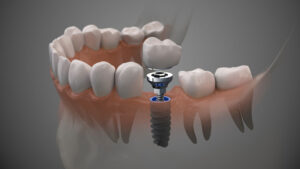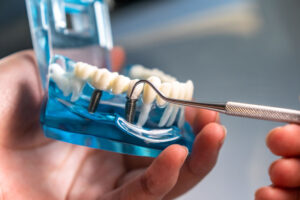Symptom #1: Momentary hot or cold sensitivity to foods or drinks.
Possible Problem: May not be a problem. You may have experienced some minimal gum recession exposing sensitive portions of your teeth. Or you may be clenching your teeth while you sleep and the following day the teeth are more sensitive. There could also be a hormonal component to the sensitivity.
What to do: Try using toothpaste made for sensitive teeth. Brush and floss carefully and completely. If this doesn’t help, call us to check with an x-ray and other pulp testing procedures.
Symptom #2: Sensitivity to hot or cold foods after dental treatment.
Possible Problem: Dental work may cause temporary nerve sensitivity.
What to do: Wait 5 to 7 days. If the pain persists or worsens, call us to evaluate any nerve (pulp) damage.
Symptom #3: Lingering (20-60 minutes) pain after eating hot or cold foods.
Possible Problem: This usually means the pulp has been damaged somehow.
What to do: Root canal treatment will likely have to be performed. Spontaneous pain – especially if it wakes you up at night – can become an obvious symptom of nerve damage.
Symptom #4: Sharp pain when biting down.
Possible Problem: Biting pain alone may indicate a cracked tooth. A crown is usually needed and often the nerve has been involved. If this biting pain is accompanied by cold sensitivity, an emergency root canal problem has developed.
What to do: Call us for an immediate evaluation and/or root canal treatment. Take an over-the-counter analgesic to stop the pain. Airplane flights or dramatic altitude changes can worsen your symptoms.
Symptom #5: Constant and severe pain with pressure, swelling of gums, and sensitivity to touch.
Possible Problem: Your pulp is completely abscessed, causing the teeth and surrounding bone to become infected.
What to do: Call us immediately to save the tooth with root canal treatment. Even strong pain medication does not help at this stage.
Symptom #6: Any pain, gum boil, or swelling that happens in a tooth that has previously had an old root canal.
Possible Problem: Tooth may be re-abscessing due to an undiscovered root canal or inadequate seal of the canals or a fracture of the tooth.
What to do: See us for preventative antibiotics so the problem doesn’t worsen. Most likely the old root canal will have to be re-done. Or surgical correction may be necessary. If the root is fractured, then the tooth will be lost.






